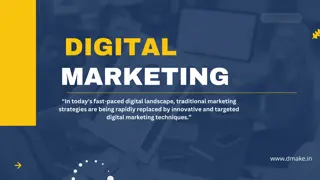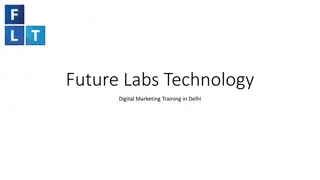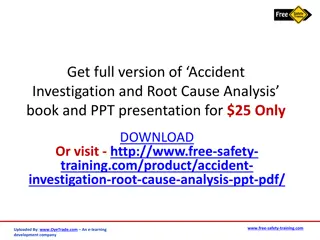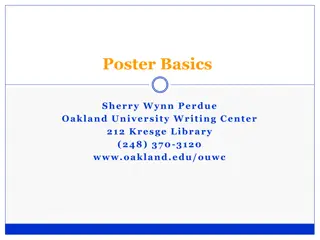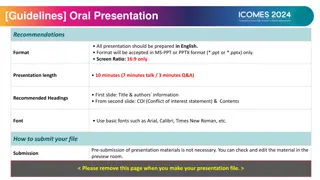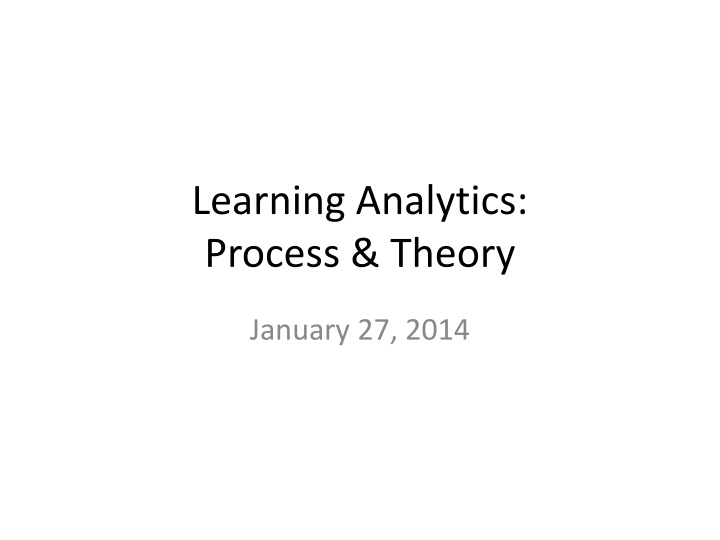
Exploring Learning Analytics: Theories and Key Figures
Dive into the world of learning analytics with a focus on theories, key figures like John Anderson and Herbert Simon, and the scientific differences between Greeno and Anderson et al. Discover the tone and rhetoric desired in scientific discourse. Join the discussion on emulating these standards as scientists.
Download Presentation

Please find below an Image/Link to download the presentation.
The content on the website is provided AS IS for your information and personal use only. It may not be sold, licensed, or shared on other websites without obtaining consent from the author. If you encounter any issues during the download, it is possible that the publisher has removed the file from their server.
You are allowed to download the files provided on this website for personal or commercial use, subject to the condition that they are used lawfully. All files are the property of their respective owners.
The content on the website is provided AS IS for your information and personal use only. It may not be sold, licensed, or shared on other websites without obtaining consent from the author.
E N D
Presentation Transcript
Learning Analytics: Process & Theory January 27, 2014
Welcome To those who were here last Wednesday And to those who are here for the first time
For those of you joining us for the first time Syllabus and all course materials are on my webpage You need Sciences of the Artificial by Simon (1996) for Monday s class
John Anderson Leader of development of ACT-R Theory Pre-eminent attempt to develop a unified theory of cognition Inventor of Cognitive Tutor Blended math curricula used by hundreds of thousands of students a year Inventor of Bayesian Knowledge Tracing Still the best way to track student knowledge in online learning, 20 years later
Lynne Reder Extremely influential researcher in memory and cognition
Herbert Simon Nobel Laureate in Economics One of the fathers of both Cognitive Science and Artificial Intelligence Important Philosopher of Design and Applied Science Wrote the book we re going to read next week
Jim Greeno Key theoretician of situationalist perspective Former editor of Cognitive Science
OK, first the obvious part Who thinks that these articles represented the tone and rhetoric that we should emulate as scientists? Why or why not?
What are the scientific differences between Greeno and Anderson et al?
Three that I think are key Understanding learning in context as part of a system, versus understanding learning as something that an individual does Arguing for learning in context versus abstract transferrable learning Arguing for the decomposability of learning phenomena versus arguing for a holistic/systems perspective
Questions (according to Greeno) Cognitive Situative How tightly bound is the knowledge to the context in which it is acquired? Does activity that occurs in one type of situation have aspects that were learned as practices and interactions with the resources available in that type of situation, and does it have aspects that were learned as practices and interactions with resources in some quite different type of situation? Will complex skills be acquired more successfully if instruction in various independent subskills is presented separately or in situations where all of the subskills are needed? In particular, will skills of complex social activities be learned more successfully if their independent subskills are learned in situations involving individual practice? Which combinations and sequences of learning will prepare students best for the kinds of participation in social practices that we value most and contribute most productively to the development of students' identities as learners? Does knowledge transfer between tasks? When someone has become more successful at participating in one kind of situation, are there other kinds of situations in which that person would be more adept? What are the relative advantages and disadvantages of abstract instruction, as op-posed to instruction for specific activity, especially for jobs? What kinds of abstract representations can contribute productively to meaningful, general learning?
Which group of authors is more comprehensible? Anderson et al Greeno Both are comprehensible Neither are comprehensible
What are the differences in writing style between the two groups of authors?
What are the differences in writing style between the two groups of authors? Decomposed linear argument versus dialectic
A key difference between Greeno and Anderson et al Should learning be understood in context as part of a system can not be decomposed or studied in parts or as something that an individual does decomposable, meaningfully can be studied in parts
This is not just a debate between Greeno and Anderson et al And it is not just a debate from a couple decades ago It is a very ongoing and current debate In education In learning analytics/EDM Elsewhere
Other comments On Anderson/Reder/Simon versus Greeno?
Buchanan and McKeons Framework Ways to design The cross of pane Neo-Aristotelianism
Dick Buchanan Founder of journal Design Issues Inventor of term wicked problem Key theoretician of design in the 1990s and the first decade of the 2000s
Richard McKeon Key 20thcentury philosopher Referred to as the Evil Professor by Robert Pirsig in Zen and the Art of Motorcycle Maintanance
Buchanan and McKeons Framework HOLISTIC EXISTENTIALIST ESSENTIALIST ENTITATIVE
Buchanan and McKeons Framework HOLISTIC EXISTENTIALIST ESSENTIALIST ENTITATIVE
Buchanan and McKeons Framework HOLISTIC EXISTENTIALIST ESSENTIALIST In education, called the Cognitive Approach by its friends ENTITATIVE
Buchanan and McKeons Framework HOLISTIC EXISTENTIALIST ESSENTIALIST You can understand things in themselves ENTITATIVE
Buchanan and McKeons Framework HOLISTIC EXISTENTIALIST ESSENTIALIST You can understand things separately from their contexts ENTITATIVE
Buchanan and McKeons Framework HOLISTIC EXISTENTIALIST ESSENTIALIST Individuals learn skills and concepts ENTITATIVE
Buchanan and McKeons Framework HOLISTIC EXISTENTIALIST ESSENTIALIST Key method: REDUCTIONISM ENTITATIVE
Buchanan and McKeons Framework HOLISTIC EXISTENTIALIST ESSENTIALIST We can understand complex phenomena by understanding their parts and how those parts interact ENTITATIVE
Buchanan and McKeons Framework HOLISTIC EXISTENTIALIST ESSENTIALIST Emergent phenomena can be understood by first understanding the motivating factors and processes ENTITATIVE
Entitative Thinkers HOLISTIC EXISTENTIALIST ESSENTIALIST Bloom ENTITATIVE
Buchanan and McKeons Framework HOLISTIC EXISTENTIALIST ESSENTIALIST ENTITATIVE
Buchanan and McKeons Framework HOLISTIC Called the ontological approach by Buchanan, and Gestalt by others EXISTENTIALIST ESSENTIALIST ENTITATIVE
Buchanan and McKeons Framework HOLISTIC In education, called Situationalism or Activity Theory by its friends EXISTENTIALIST ESSENTIALIST ENTITATIVE
Buchanan and McKeons Framework HOLISTIC Things can only be understood by understanding the systems they operate in EXISTENTIALIST ESSENTIALIST ENTITATIVE
Buchanan and McKeons Framework Learners are enculturated into practices that communities agree are correct HOLISTIC EXISTENTIALIST ESSENTIALIST ENTITATIVE
Buchanan and McKeons Framework HOLISTIC Complex phenomena must be understood as wholes; they can not be understood in terms of their component parts EXISTENTIALIST ESSENTIALIST ENTITATIVE
Buchanan and McKeons Framework HOLISTIC Emergent phenomena must be understood in themselves EXISTENTIALIST ESSENTIALIST ENTITATIVE
Buchanan and McKeons Framework HOLISTIC Key method: DIALECTIC EXISTENTIALIST ESSENTIALIST ENTITATIVE
Buchanan and McKeons Framework HOLISTIC Truth is found through the struggle of opposing hypotheses and their eventual unification in a richer synthesis (Hegelian-Kantian dialectic) EXISTENTIALIST ESSENTIALIST ENTITATIVE
Buchanan and McKeons Framework HOLISTIC Truth is found through positing overly abstract hypotheses, finding evidence that negates them, and coming to a newer concrete theory (Hegelian dialectic) EXISTENTIALIST ESSENTIALIST ENTITATIVE
Buchanan and McKeons Framework HOLISTIC Change is governed by historical properties (historicism) where contradictions and states repeat themselves but in continual refinement (material dialectic) EXISTENTIALIST ESSENTIALIST ENTITATIVE
Dialectical Thinkers HOLISTIC Barab Pirsig Vygotsky Freire EXISTENTIALIST ESSENTIALIST ENTITATIVE
Another key dimension Is there a reality out there that we want students to learn about? Are we just teaching cultural practices, or are we teaching real things?
Buchanan and McKeons Framework HOLISTIC EXISTENTIALIST ESSENTIALIST ENTITATIVE
Buchanan and McKeons Framework HOLISTIC Doesn t really have a name that its friends call it, in education EXISTENTIALIST ESSENTIALIST ENTITATIVE






